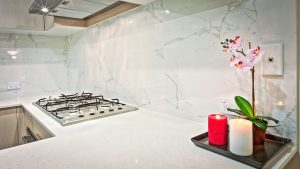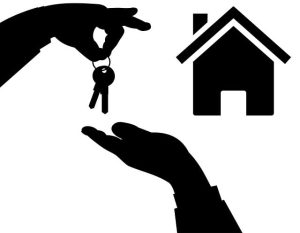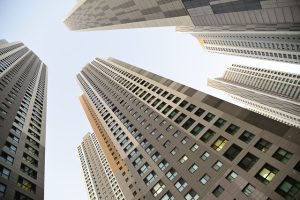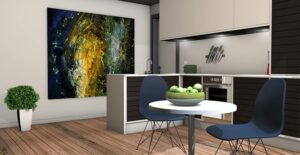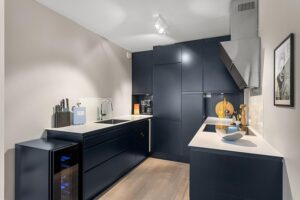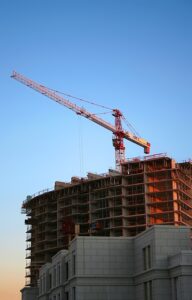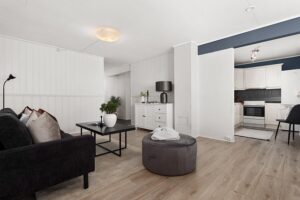In Singapore, both HDB flats and Executive Condos (ECs) serve as valuable housing options with distinct advantages for different lifestyles. HDB flats are known for their affordability and practicality, with a focus on community living and essential amenities…….
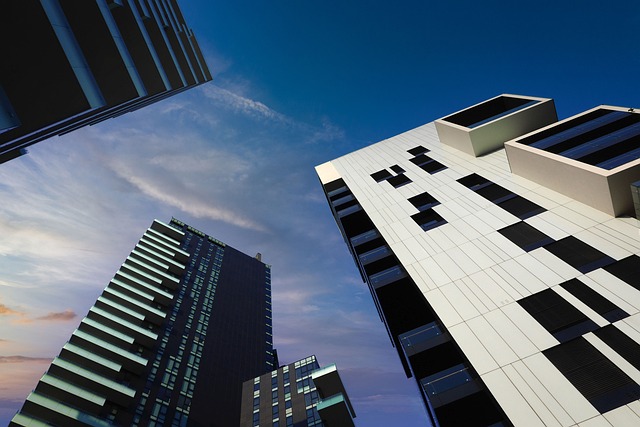
In Singapore, both HDB flats and Executive Condos (ECs) serve as valuable housing options with distinct advantages for different lifestyles. HDB flats are known for their affordability and practicality, with a focus on community living and essential amenities, making them an accessible entry point into homeownership that can appreciate in value over time. ECs, on the other hand, offer a more luxurious living experience with spacious units and advanced facilities, catering to those who desire upscale features. They also have the potential to transition into private properties after fulfilling certain conditions, enhancing their investment value. Both types of residences come with Minimum Occupation Periods (MOP) that impact their marketability—HDB flats have a MOP of two years, while ECs have a longer MOP under the MERS framework of three years. Investors should consider the long-term implications of government regulations on housing affordability and investment potential when choosing between an HDB flat and an Executive Condo in Singapore's dynamic property market.
- Understanding the Distinctions Between HDB Flats and Executive Condos (ECs)
- Eligibility Criteria: Who Can Apply for an HDB Flat vs an EC?
- Financial Considerations: Price Points, Loan Options, and Affordability
- Resale Versus New Purchases: The Market Dynamics of HDB Flats and ECs
- Location and Layout: Factors Influencing the Choice Between HDB Flats and ECs
- Lease Duration and Resale Value Projections for HDB Flats and ECs
- Design and Amenities: Comparing the Living Experience in HDB Flats and ECs
- The Impact of MOP (Minimum Occupation Period) on Selling or Renting Out Your Property
- Long-Term Investment Potential for HDB Flats and Executive Condos
Understanding the Distinctions Between HDB Flats and Executive Condos (ECs)

Eligibility Criteria: Who Can Apply for an HDB Flat vs an EC?

When considering housing options in Singapore, discerning the eligibility criteria between an HDB flat and an Executive Condo (EC) is crucial for potential homeowners. An HDB flat, a staple of Singaporean living, is typically accessible to citizens who meet the Public Housing Scheme’s eligibility requirements. Singles, families, and married couples without any children are eligible to apply for these flats. The criteria include being a first-timer applicant or having previously owned or sold a resale flat. Moreover, applicants must satisfy the minimum occupancy period for their previous flat before they can apply for a new one.
On the other hand, an EC is designed for couples where at least one of the partners is a Singaporean citizen. Unlike HDB flats, which are exclusively for ownership by citizens or PRs, ECs allow eligible Singaporeans to purchase a flat on a 99-year leasehold basis within the first five to ten years of EC launch. The eligibility criteria for an EC include being aged 21 and above, having a minimum household income of SGD5,000, and not owning another flat at the time of application. Additionally, applicants must not already own two or more residential properties in Singapore, or owns a private residential property, and must intend to use the EC as their married or first home. These different eligibility criteria highlight the distinct nature of HDB flats and ECs, catering to the varying needs and life stages of Singaporean families.
Financial Considerations: Price Points, Loan Options, and Affordability

When considering housing options in Singapore, potential homeowners often weigh the benefits between an Executive Condominium (EC) and a Housing & Development Board (HDB) flat. Financial considerations play a pivotal role in this decision-making process, particularly regarding price points, loan options, and overall affordability. HDB flats are traditionally more accessible to a broader range of income levels due to their subsidized pricing and various schemes like the CPF Housing Grant for eligible applicants. On the other hand, ECs, which bridge the gap between public and private housing, offer larger and more luxurious living spaces compared to standard HDB flats. The price of ECs is generally higher, reflecting their enhanced features and facilities. However, both HDB flats and ECs come with their respective financing options through the Central Provident Fund (CPF), Singapore’s comprehensive social security system. Prospective buyers can explore different loan packages from various financial institutions, which often include attractive terms for first-time homeowners. It is advisable to assess one’s financial situation and eligibility criteria for both HDB flats and ECs to determine the most suitable and affordable housing option, considering the long-term implications of the initial investment and repayment obligations.
Resale Versus New Purchases: The Market Dynamics of HDB Flats and ECs

When considering a residential purchase in Singapore, potential homeowners often compare the options between an HDB flat and an Executive Condominium (EC). A key aspect of this comparison is the market dynamics of resale versus new purchases for both types of housing. HDB flats are the most common form of public housing in Singapore, designed to be affordable and accessible to a wide range of residents. The resale market for HDB flats is robust, with prices influenced by factors such as location, flat type, age, and the state of the housing market. Prospective buyers can benefit from the transparency of resale market transactions, where previous sales provide a clear benchmark for valuation.
In contrast, ECs are a hybrid between public and private housing, offering larger units and more luxury compared to HDB flats. When purchasing a new EC or an EC on the resale market, buyers encounter different dynamics. New EC projects are subject to the SingPass Digital Certificate registration process and are sold by developers at prices set according to market conditions at the point of launch. Resale ECs, on the other hand, are individual units within established developments that have completed their minimum occupation period (MOP). The resale market for ECs is less volatile than for HDB flats but still offers flexibility and potential capital appreciation for owners. Both HDB flats and ECs have their own unique marketplaces with distinct advantages; understanding these dynamics is crucial for homeowners to make informed decisions based on their lifestyle, financial considerations, and long-term plans.
Location and Layout: Factors Influencing the Choice Between HDB Flats and ECs

Choosing between an HDB flat and an Executive Condo (EC) often hinges on the location and layout preferences, which are pivotal in shaping the quality of life for residents. HDB flats are available across a wide array of locations in Singapore, catering to various demographics and needs. They are strategically positioned to ensure accessibility to amenities such as supermarkets, food courts, community centers, and public transportation, making them an ideal choice for those who prioritize convenience and proximity to essential services. The layout of HDB flats is designed with space efficiency in mind, offering a range of configurations to suit different family sizes and lifestyles.
In contrast, Executive Condos are typically situated in mature estates or areas undergoing redevelopment, providing residents with the dual benefits of living close to established facilities while enjoying the features of a newer housing development. ECs often come with more spacious layouts compared to HDB flats, featuring larger rooms and common areas that can accommodate the needs of growing families. This spatial advantage, combined with contemporary design elements, makes ECs an attractive option for those seeking a balance between space and affordability. When considering both options, potential homeowners should assess their lifestyle, future family plans, and the type of neighborhood they envision themselves thriving in. Location and layout are not just about where you live but how you live, influencing everyday comfort, community integration, and long-term satisfaction with your home.
Lease Duration and Resale Value Projections for HDB Flats and ECs

In Singapore, understanding the lease duration and its implications on resale value is crucial for homeowners considering an HDB flat or an Executive Condo (EC). HDB flats are public housing provided by the Housing & Development Board, with a standard lease of 99 years from the date of purchase. As the lease duration diminishes over time due to ‘lease decay’, the value of HDB flats typically declines as well. However, the resale value projections for these flats are generally stable and supported by historical trends, given their widespread availability and popularity among residents. On the other hand, ECs are a hybrid of public and private housing, designed for couples with at least one Singaporean citizen. These units offer a 99-year lease as well, but unlike HDB flats, they can be sold on the open market after meeting certain criteria. The resale value projections for ECs may vary based on location, condition, and market demand, which can be influenced by broader economic factors and the maturity of the estate. Over time, as the lease duration shortens for both HDB flats and ECs, owners must consider how this will affect their long-term investment and resale options. It’s important to analyze the current market trends and future projections when deciding between an HDB flat and an EC, taking into account factors such as lease remaining, location preference, and personal financial plans.
Design and Amenities: Comparing the Living Experience in HDB Flats and ECs

When considering a new home in Singapore, discerning residents often compare the living experiences offered by HDB Flats and Executive Condos (ECs). Both housing types are integral to the local landscape, catering to different lifestyle preferences. HDB Flats are known for their practicality and affordability, designed with the needs of the general population in mind. They come equipped with a range of basic amenities that ensure comfort and convenience. Features such as communal facilities like playgrounds, gymnasiums, and swimming complexes are available to residents, fostering a sense of community and providing options for recreation. In contrast, ECs offer a more luxurious living experience with design elements that often include larger unit sizes and higher ceiling heights. These condominiums are typically equipped with top-tier amenities such as smart home features, concierge services, and state-of-the-art fitness centers. The development of ECs often includes thematic designs and varied facilities that cater to diverse interests and lifestyles, setting them apart from the more uniform design of HDB Flats. Both housing types, however, are designed with the intention of providing residents with a comfortable and well-appointed living space, albeit with differences in scale and offerings that reflect their intended market segments. Prospective homeowners should consider these design and amenity aspects when deciding between an HDB Flat and an Executive Condo to choose the one that aligns best with their lifestyle aspirations.
The Impact of MOP (Minimum Occupation Period) on Selling or Renting Out Your Property

When considering the sale or rental of property in Singapore, the Minimum Occupation Period (MOP) is a significant factor that affects both HDB flats and Executive Condos (ECs). For HDB flat owners, the MOP is two years from the date of collection of keys. After satisfying this MOP, HDB flat owners have the flexibility to sell their flat in the open market or keep it as an investment by renting it out. On the other hand, ECs have a different set of rules under the MERS (Minimum Occupation Period for ECs). Introduced to provide a transition pathway from public to private housing, the MOP for ECs is three years. This extended period allows potential buyers to better plan their finances and arrangements post-MOP completion. Post-MOP, EC dwellers can sell their units to Singapore citizens or continue leasing them out. The difference in MOP between HDB flats and ECs influences the liquidity and investment potential of each property type. For investors, understanding the MOP is crucial as it directly affects the resale value and rental yield of these properties. Prospective sellers and renters must take into account this period before they can fully capitalize on their property’s market value in the dynamic Singapore real estate landscape.
Long-Term Investment Potential for HDB Flats and Executive Condos

When considering long-term investment potential, both HDB flats and Executive Condos (ECs) present unique opportunities within Singapore’s property market. HDB flats have historically been a stable and accessible choice for homeownership among Singaporeans, offering a solid foundation for long-term investments. They are subject to the HDB resale price ceiling which helps to ensure affordability and accessibility. Over time, as these flats age, their value may appreciate, especially if they are well-maintained and located in desirable areas with good public transportation links or near amenities. The resale market for HDB flats provides liquidity for investors looking to realize capital gains over the years.
On the other hand, Executive Condos are a hybrid housing type designed to offer a step up from public housing while remaining relatively affordable. ECs are sold by developers and, after a certain period, they will be privatized and can be sold on the open market like any private condominium. This unique status allows for potential capital appreciation as the units transition from being tied to HDB resale price limits to becoming part of the private property market. Investors may find that ECs offer a dual advantage: the initial affordability coupled with the long-term prospect of being revalued as private properties, which could enhance their investment appeal and value over time. Both HDB flats and ECs are subject to government regulations aimed at ensuring housing stability and affordability, but the transition path for ECs to become full private property can be a significant factor in their long-term investment potential.
When considering the decision between an HDB flat and an Executive Condo (EC), it’s crucial to weigh a multitude of factors, from eligibility and financial implications to location, design, and future resale value. HDB flats offer a stable and affordable option for many households, with a robust resale market and a variety of layouts to suit diverse needs. On the other hand, ECs cater to the aspirations of middle-income families, providing a blend of private property benefits within a public housing framework. The choice between an HDB flat and an EC ultimately hinges on individual preferences, financial capacity, and long-term investment goals. Prospective homeowners should carefully assess their eligibility, evaluate the costs versus benefits, and consider how each housing type aligns with their lifestyle aspirations and financial projections over time. With a thorough understanding of the distinctions and dynamics between HDB flats and ECs, individuals can make informed decisions that best suit their unique circumstances, ensuring a comfortable and financially sound living environment for years to come.
